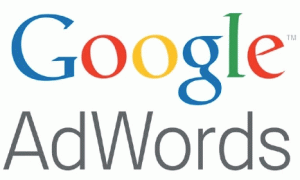AdWords To Automatically Match For Misspellings, Other Variants
Most experienced AdWords advertisers have developed keyword lists that include things like misspellings, plurals, and other variations on a keyword or phrase. Now, Google will do all this automatically — as it does with organic results — with exact and phrase matching, though advertisers will be able to opt out. The new behavior will take […]
 Most experienced AdWords advertisers have developed keyword lists that include things like misspellings, plurals, and other variations on a keyword or phrase. Now, Google will do all this automatically — as it does with organic results — with exact and phrase matching, though advertisers will be able to opt out.
Most experienced AdWords advertisers have developed keyword lists that include things like misspellings, plurals, and other variations on a keyword or phrase. Now, Google will do all this automatically — as it does with organic results — with exact and phrase matching, though advertisers will be able to opt out.
The new behavior will take into account five different variations in language:
- Misspellings (“waterprof sunblock” instead of “waterproof sunblock”)
- Singular/plural forms (“beach balls” and “beach ball”)
- Stemming (“single serve” and “single serving”)
- Accents (“hotel” and “hôtel”)
- Abbreviations (“Dr.” versus “Doctor”)
- Acronyms (“NYC” versus “New York City”)
The company says up to 7% of search queries include misspellings, and the longer the query, the more likely it is to contain some misspelling.
Google has been testing the new functionality with a few advertisers and says it has seen an average of a 3% rise in search clicks, at comparable CPCs, though the company notes performance will vary by advertiser.
The new interface (in the campaign settings tab, under Advanced settings select Keyword matching options) will be rolled out in the web interface to all advertisers over the next couple of weeks, and it will appear in the next version of the API released later this month. By default, matches will “Include plurals, misspellings and other close variants,” but advertisers can opt out if they’d like finer control of their keywords.
The actual matching won’t start until mid-May to give users a chance to opt out if they’d like.
Jen Huang, the AdWords product manager for this functionality, said this had been an often-requested feature, and the company believes it will benefit both advertisers and consumers.
Related stories
